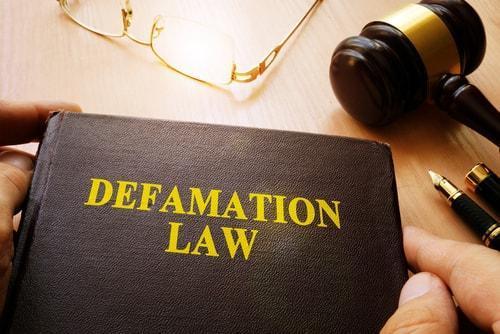Could You Face Criminal Charges for What You Say on Social Media?
 In today’s digitally connected world, virtually everyone has a voice that can be heard across the globe. Most people, however, do not really think of social media that way, largely limiting their posts and ideas to their friends, families, and followers. Sometimes, though, a social media post can cause a great deal of trouble for the poster, including the danger of being arrested. While it is not common for a person to be arrested for the things they say online, it can and occasionally does happen.
In today’s digitally connected world, virtually everyone has a voice that can be heard across the globe. Most people, however, do not really think of social media that way, largely limiting their posts and ideas to their friends, families, and followers. Sometimes, though, a social media post can cause a great deal of trouble for the poster, including the danger of being arrested. While it is not common for a person to be arrested for the things they say online, it can and occasionally does happen.
New Hampshire Man Arrested for Criminal Defamation
In May of last year, a man in New Hampshire was arrested by local police for comments he posted on Facebook. The man had not made any threats nor were his comments harassing anyone. Instead, the police allege that he violated the state’s law regarding criminal defamation—sometimes called criminal libel in other jurisdictions. The New Hampshire law makes it a criminal offense for a person to "purposely communicate to any person, orally or in writing, and information which he knows to be false and knows will tend to expose any other living person to public hatred, contempt, or ridicule."
So, what was the false information that the man posted? It turns out that the man had simply posted a comment on an article published online by the local paper about a local police officer. His comment said that the officer "is the dirtiest most corrupt cop that I have ever had the displeasure of knowing." He also called the local police chief a "coward" who "did nothing about it." The man was arrested on charges of criminal defamation, but the case was dismissed after the New Hampshire Attorney General’s Civil Rights Division criticized the arrest.
The man has now filed a lawsuit against the New Hampshire Attorney General looking to have the law declared unconstitutional for violating the First Amendment.
Criminal Defamation and Libel
It is unreasonable to think that one can simply say anything—even online—without the potential for criminal consequences. For example, it is understandably a crime in most jurisdictions for a person to make threats of violence on social media. In fact, an East Hartford High School student was arrested for breach of peace related to threats that he made online. Local police spent significant time and resources to address the threats, so a criminal charge was largely in order.
Laws that pertain to criminal defamation and libel are much more concerning. While Connecticut does not have such criminal laws on its books, the nearby states of New Hampshire and Massachusetts both do. Critics of such laws say that they are "unconstitutionally vague," which means that local police can basically choose who to go after and when.
Civil laws exist that address defamation and libel but those typically require a victim to show that he or she was harmed by the published or posted information in some way. In practice, however, it appears that law enforcement and public officials are disproportionately pushing for criminal libel prosecutions, possibly because their critics do not have the money to make a civil suit worth the effort. Many of those who are prosecuted also lack the resources to hire a competent defense attorney, leading to guilty pleas and convictions regardless of whether their speech was truly defamation or libel.
Contact an East Hartford Defense Attorney
If you or someone you love is facing criminal charges for posts that you made online, contact an experienced Connecticut criminal defense attorney. Call 860-290-8690 for a free consultation and case review at Woolf & Ross Law Firm, LLC today.
Sources:
https://www.nytimes.com/2019/01/07/us/politics/criminal-libel-laws-lawsuit.html






